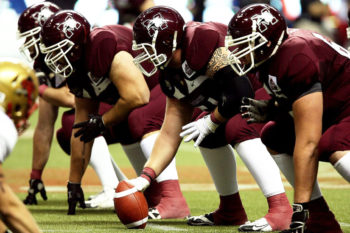Why Is Fantasy Football So Popular?
With the NFL season well and truly underway, fantasy football fans everywhere are picking out their daily teams to compete against each other alongside the real matches. A favorite pastime of sports fans all over the globe, the concept of fantasy football has been around since the creation of the world’s first fantasy football league in 1962 by Wilfred “Bill” Winkenbach, a limited partner in the Oakland Raiders. Winkenbach, along with Bill Tunnel and Scotty Starling, created a rulebook which would eventually become the foundation of modern fantasy football.
In 1984, Tom Kane Jr. and Cliff Charpentier co-authored the first ever Fantasy Football Digest, a book that encapsulated all of the rules for the game in written format. As the fanbase continued to grow, media coverage took note and by the 1990s USA Today had an entire column dedicated to it. In 1999 The Fantasy Sports Trade Association was founded, Yahoo! started offering free fantasy football leagues and the rest, as they say, is history.
With the NFL announcing complete lineups of products to provide a deeper connection to games, some might argue that fantasy football has had its time. But with an estimated 33 million followers it is safe to say that it is not going anywhere anytime soon. So, what is it about fantasy football that people love so much?
It’s all in the knowledge
In its most basic format, fantasy football gives players the control they want over creating the ultimate professional football team. Using knowledge of the teams, players and performances, fantasy football fans select the athletes with the best performances from that week to play in their team.
To be successful, fans need to have the business savvy of a manager, the knowledge of a scout, and the strategy of a head coach. Combine this with understanding of the variables, such as weather conditions and injuries and it’s easy to see why fans can get so involved in their fantasy league.
Players pay a nominal fee for each game that they enter. They then need to select players from a list based on their expectation of how well they will perform that week. If their fantasy team outperforms others then the player wins money, the prize being relative to that of the win. While it might sound straightforward enough, newcomers to the world of fantasy football often reference cheat sheets to get started.

Leagues are short lived
One of the benefits of playing in these leagues is that if you have a bad week, you simply begin again the following week. Although this means losing out on a nominal fee for entering the game, it doesn’t lead to any consequences that people end up regretting. This is the beauty of playing in the fantasy football leagues, and one which is not lost on its millions of fans.
Not only is the game perfect for those with short attention spans, but it also provides alternative opportunities for sports fans to enjoy the games. Sure, your real-life team might be doing poorly this year, but your fantasy team could be kicking serious butt on a daily basis! This means that playing fantasy leagues encourages fans to look at how they support teams in a whole new light.
A team you might not have any links to could suddenly become a firm favorite because of the players that you happen to have chosen for your fantasy team. While you will still have love for your home team, you might find yourself secretly (or openly!) supporting others as their players rack up your points in the fantasy league.
This open approach to supporting clubs combined with the short-lived nature of leagues and the immense amount of sports knowledge needed to create winning teams is an enticing concoction for any football fan. The only difficulty is trying to watch all 1,700 players to get a handle on how well they perform!



